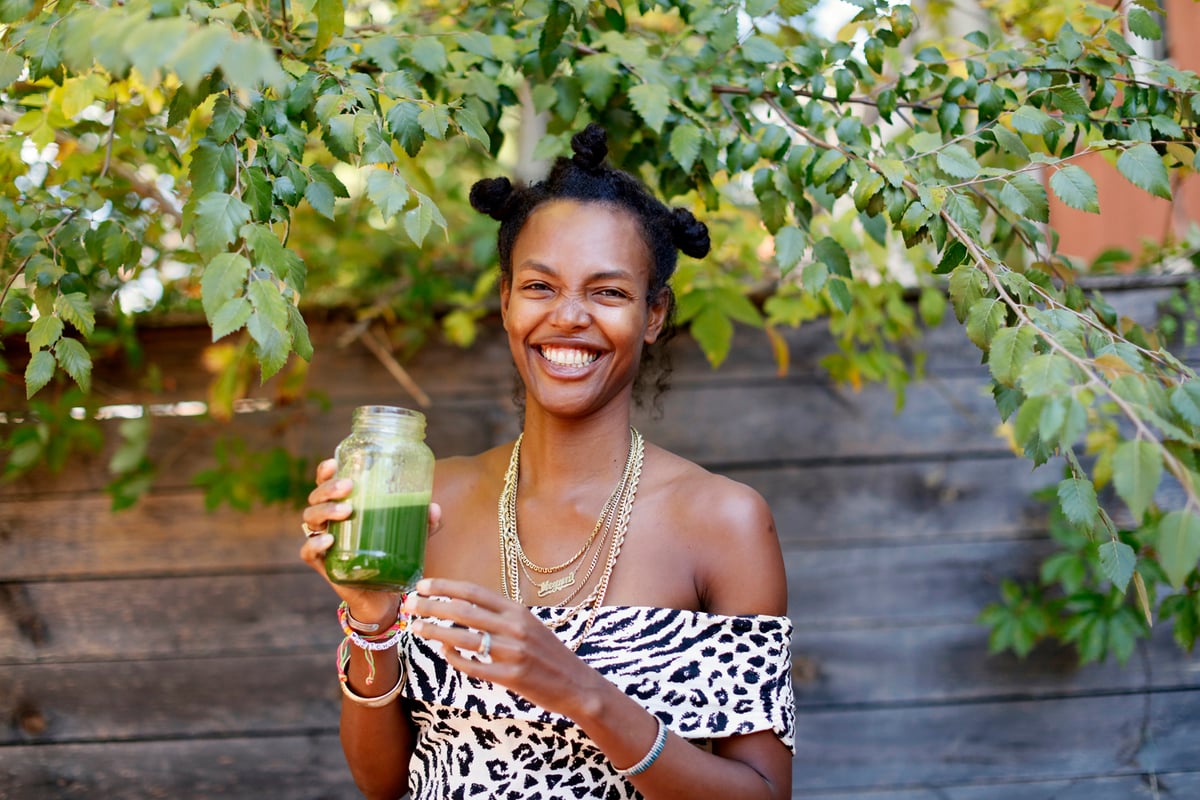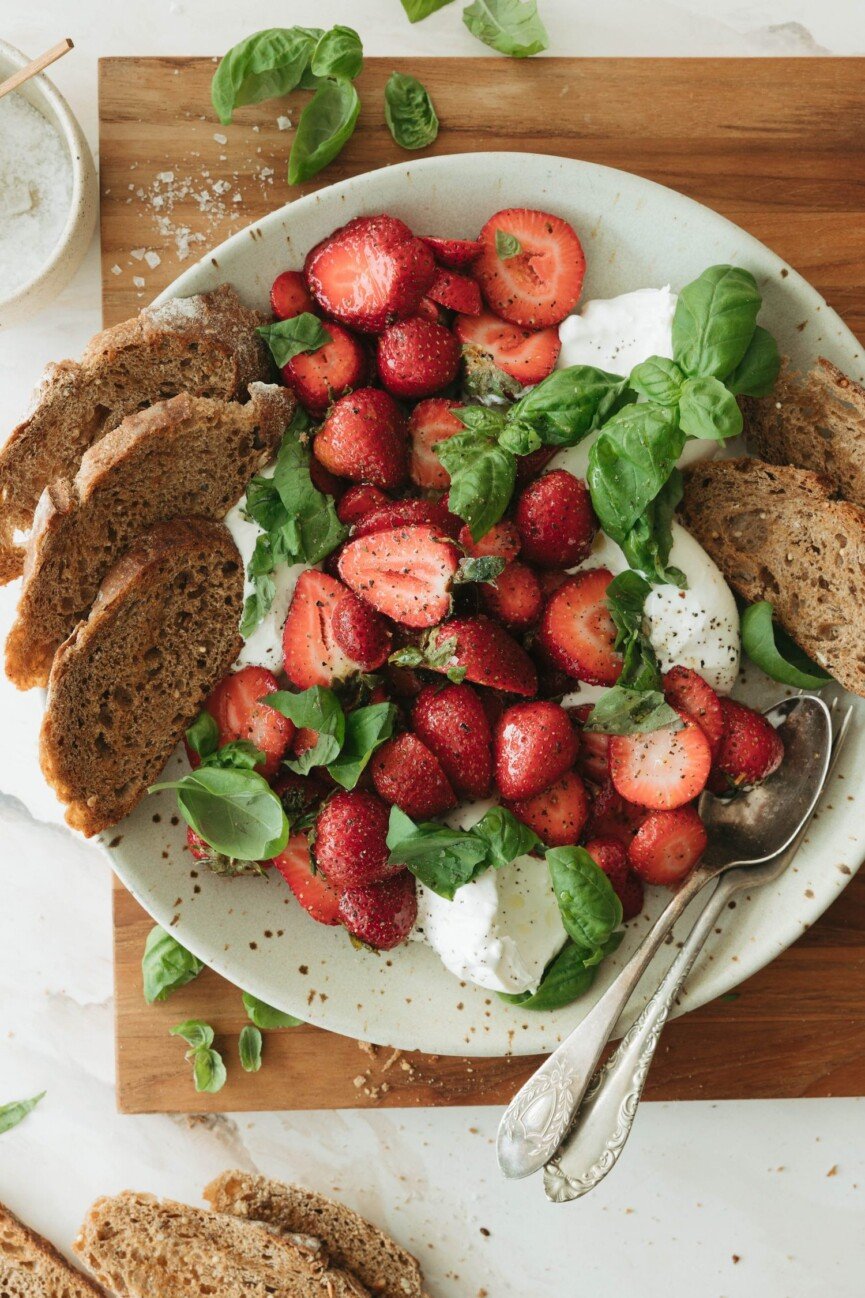This Expert Will Convince You to Stop Spending on Skincare—and to Adopt This Game-Changing Lifestyle Shift Instead
Vibrant insights ahead. The post This Expert Will Convince You to Stop Spending on Skincare—and to Adopt This Game-Changing Lifestyle Shift Instead appeared first on Camille Styles.

There are two types of people: one will detail her full skincare routine at the drop of a hat. The other, however, credits her glow to “just drinking water.” But those girls might be onto something. Genetics, hormones, and age play a significant role in the appearance of your skin. And topical skincare goes a long way—especially when you tailor your routine to your skin type and individual needs. But as we’re beginning to learn, a connection exists between nutrition and your resulting glow (or lack thereof). So, how does food affect your skin? You’ve come to the right place for answers.
The relationship between food and skin is more powerful than you think. Sleep, food, and skin products are all part of a holistic routine for your face. Like any organ, your skin health and diet are directly linked. Prioritizing whole foods, nourishing ingredients, and hydrating your cells from the inside out is the first step to clear, radiant skin.

What Your Food Is Really Doing to Your Skin
Skin supplements are all the rage. Beauty retailers and even grocery stores line their shelves with powders and elixirs claiming endless aesthetic benefits. Many of these are backed by research (though many are not). But nourishing your body with the right food trumps them all.
As a lover of sweet treats, I would never advocate for depriving yourself. Paying for my dessert with the occasional pimple is a price I’m willing to accept. But a solid foundation of healthy, balanced meals can support your skin in the short and long term. From dehydration to hormonal acne, your skin and what you eat are so intertwined that by changing your diet, a transformation is virtually guaranteed.
To dive deeper into the topic, I spoke with Julie Nguyen, co-founder and CEO of Methodology, a premium prepared food service committed to delivering fresh and nourishing meals composed of vibrant ingredients. Ahead, she shares her insights on the importance of nutrition for your skin. Keep reading for tips on building a healthy-skin diet.

How does food affect your skin?
What you eat can help your body repair and renew your skin to make it radiant or cause serious skin issues like eczema, acne, and psoriasis. Your diet also affects how quickly your hair grows. When your diet is poor, this can lead to excess shedding and slower hair growth.
Almost nothing affects your skin and hair health more than your diet.
Julie NguyenWhich foods do the greatest harm to your skin?
Any foods that cause excess inflammation in your body will negatively impact your skin if consumed consistently in high enough amounts. Your body can clear only so many inflammatory foods from your system before skin issues arise. On the flip side, eating unprocessed, nutrient-dense foods helps repair and renew skin.
Foods that cause inflammation when eaten too often and in too high quantities include:
Refined sweeteners Alcohol Trans fats Factory-farmed meat Ultra-processed packaged foodsPuffiness and bloating in the face can be caused by overeating sugar, alcohol, and ultra-processed foods like bread and pastries. They can also be caused by not having enough water or hydrating foods like fruits and veggies.

How do certain ingredients affect your skin?
If you have a sensitivity to a food, eating too much of that too often can cause too much inflammation in the body and lead to skin issues like acne, eczema, and psoriasis. People with compromised gut health will have more food sensitivities, and healing the gut is the best way to deal with the root cause of skin issues caused by these food sensitivities. Eating high-fiber, nutrient-dense foods, and probiotic foods like apple cider vinegar and kimchi improve gut health, which will noticeably improve the health of your skin.
The most common food sensitivities we see among Methodology customers are sensitivities to wheat, gluten, and dairy. Ultra-processed foods also lead to gut health issues and skin issues. These are foods that include those hard-to-pronounce or suspicious-sounding ingredients that you would never cook with at home. The food industry uses these ingredients to improve the shelf life, flavor, smell, and texture of foods that would otherwise go bad quickly.

How long does it take for dietary changes to improve skin?
The reason so many people don’t realize that diet and skin are so intertwined—and waste too much money on expensive skincare products that address symptoms and not root causes—is that it can take two months for dietary changes to show up on your skin.
It’s not like you eat cheese and then get a pimple caused by cheese the next day. Pimples caused by dairy might not appear on your face for 4-6 weeks. This is why if you suspect your diet is causing skin issues, you need to clean up your diet first at least two months to see whether your changes are working.
What foods would you recommend for clear skin?
Glowing, clear skin is most accomplished through diet by cutting out anything that’s causing acne or other skin issues. An elimination diet is the best way to figure this out. From there, once your skin has no major problems, make sure you’re eating the widest variety of plants possible (at least 30 per week), getting at least 30 grams fiber a day, and having something probiotic daily like apple cider vinegar, miso, or sauerkraut. This will optimize your gut health and give you dewy, radiant skin.
Eating intuitively will help you eat for your skin at the same time. Think of your skin as an alarm system telling you that something may be off with your diet.

What’s your take on skin supplements?
You don’t need any supplements for glowing skin. You can get there if you’re consistent with avoiding the foods that trigger your skin issues and consistently eating foods every day that optimize gut health. If you eat this way 90% of the time, you will have incredible skin.
That being said, once your diet is fully optimized, you can take your skin health a step further by regularly consuming a high-quality pastured bone or fish broth or a high-quality grass-fed beef or wild marine collagen supplement.

 Kass
Kass 

































